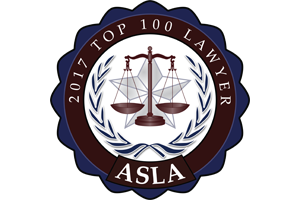Wrongful Death Attorneys
Recent Washington Barge Accident Generates Questions of Liability
At the end of February, a barge in Commencement Bay near Tacoma Washington was recently aided after it began listing and taking on water. The barge, owned by Amix Marine Services, was carrying several crushed cars owned by Schnitzer Steel. Several cars had fallen into the water, creating an oil sheen on the surface from the cars’ residual oil left in their tanks. U.S. Coast Guard and Washington’s Department of Ecology created a 250 yard safety zone around the barge in an attempt to minimize damage to the environment.
Accidents like this serve as a reminder that towage is different than charter. There are two types of towage contracts: contracts of affreightment, where one party transfers cargo from one place to another; and towage contracts where one party takes a vessel, like a barge, and moves the vessel elsewhere. If the party that is supplying the transportation owns the tug or barge that is moving another party’s goods, then that is considered a contract of affreightment.
Courts have been faced with similar questions, as in Agrico Chemical Co. v. M/V Ben W. Martin, 664 F.2d 85 (5th Cir. 1981), where a company that owned the barge contracted with a chemical manufacturer to move a nitrogen fertilizer product in a contract of affreightment. The barge company then contracted with a tow boat company to tow two of their barges containing the product. A third barge was needed to move extra product, so the barge company requested that the towing company provide a vessel. A vessel was provided by the towing company, but manned by someone from the barge company. It was this third vessel provided by the towing company that capsized with the product.
The manufacturer only sued the towing company, but the towing company sought indemnification from the barge company. The lower court found that the barge company was solely liable, awarding the manufacturer full damages against the towing company and full indemnity for the towing company against the barge company. The appellate court reversed that decision, splitting liability between the barge company and towing company, assessing the contractual obligations to be different than what was found by the lower court.
The court held that the initial contact between the manufacturer and barge company was one of affreightment. The contract between the barge company and towing company was a towage contract for the first two barges, but the contractual relationship for the third barge that would determine liability was uncertain. Ultimately, the court found that the barge company had subcontracted its original contract of affreightment with the manufacturing company with the towing company. The barge company was negligent in its loading and its duty of workmanlike performance as a stevedore. The towing company was negligent in its choice of vessel and redistribution of the product.
Questions of towage or affreightment can also affect who is liable for the injuries of a longshoreman. Liability can be limited, depending on the whether the contract is one of towage or affreightment. Attorneys John Merriam and Gordon Webb have several years of experience assessing the unique facts of each maritime law case to determine how to maximize damages. If you have damaged property or have been injured on a tow or barge vessel, then contact the tug and barge injury attorneys, John Merriam and Gordon Webb at 877.800.1007.














